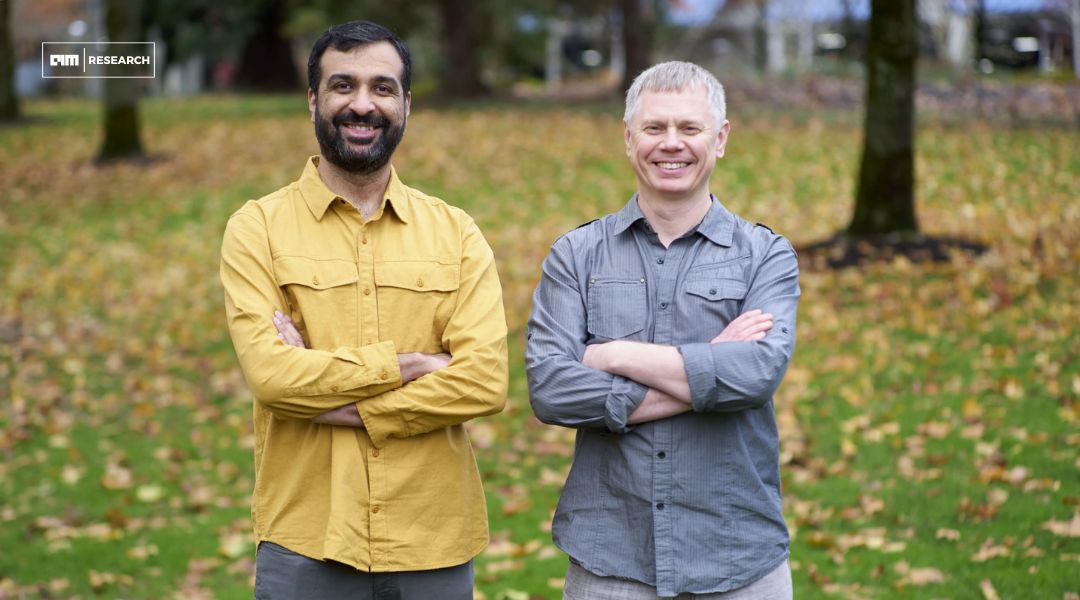
Temporal Secures $146M in Series C As AI-Driven Microservices Take Center Stage
- By Anshika Mathews
- Published on
Developers don’t want to think about orchestrating workflows—they just want their systems to work.


Seattle-based Temporal has spent years cementing itself as a vital player in microservices orchestration, helping companies streamline the complex web of integrations and processes in cloud-based applications. While its core mission remains unchanged, the landscape around it has shifted dramatically, with AI emerging as a dominant force in enterprise software. Temporal has secured $146 million in a Series C funding round led by Tiger Global, with participation from existing investors like Index Ventures and Sequoia Capital, bringing its total funding to $350 million.
Despite the size of the round, the company’s post-money valuation tells a more nuanced story. The $1.72 billion valuation represents only a slight increase from its previous $1.5 billion valuation in February 2023. Before that, reports suggested a dip to as low as $880 million, a figure the company has never confirmed. CEO and co-founder Samar Abbas himself characterized the new valuation as “a little bit up — a very little bit.” In an era where hypergrowth and sky-high valuations define many AI-driven companies, Temporal’s modest uptick underscores a more measured trajectory.
Temporal’s origins trace back to Uber, where Abbas and his co-founder Maxim Fateev developed Cadence, an open-source orchestration engine designed to manage interactions between microservices. Recognizing that the need for reliable, scalable microservices extended far beyond Uber, they launched Temporal in 2019.
For years, companies such as Box, Instacart, Snap, and Stripe have relied on Temporal’s platform to manage processes like payment handling, customer onboarding, and infrastructure automation. More recently, the rise of AI-powered applications has introduced a new set of demands, and Temporal has positioned itself as an essential component in this shift. One of its biggest clients, Nvidia, has integrated Temporal into its NIM microservices platform, which facilitates the deployment of AI models for various applications, including AI agents designed for trust and safety.
AI applications, particularly those involving agentic AI, require complex workflows that interact with multiple services, databases, and processing layers. Temporal’s “durable execution” model ensures these workflows remain reliable over long durations—an often-overlooked necessity for AI systems that must manage stateful, multi-step processes over time.
As part of its expansion into AI-related use cases, Temporal is investing a significant portion of its new funding into R&D. One key initiative is Nexus, a feature introduced at the end of 2024 in its Temporal Cloud platform. Nexus aims to improve security, fault isolation, and modularity—features that are crucial for AI-driven workflows. The company also plans to enhance its public cloud availability for Azure, facilitating cross-cloud integrations.
Temporal’s growth trajectory has shifted compared to its earlier years. The company reports that revenues have increased 4.4x in the last 18 months. Though solid but a far cry from the more than 20x growth it claimed in the 12 months leading up to February 2023. Meanwhile, its open-source Temporal.io platform has 183,000 active users, and its managed enterprise service, Temporal Cloud, boasts 2,500 customers. While these figures indicate continued adoption, they also suggest that Temporal is entering a more sustainable, rather than explosive, phase of growth.
To maintain momentum, the company is expanding its team from 250 to over 300 employees and increasing its presence in Europe, the Middle East, and Asia-Pacific. Abbas, who took over as CEO in April 2024, is steering the company toward a future where Temporal is a foundational component of AI-native infrastructures.
Temporal’s open-source roots remain central to its identity. The company frames its success as a product of community-driven development, where adoption by developers fuels its growth. The approach has clearly worked as Temporal reports that its open-source platform has seen a 600% increase in developer adoption over the past 18 months.
This latest funding round is not just a bet on Temporal’s technology but on the developers who rely on it. The company plans to invest in improved SDKs, deeper integrations, and expanded learning resources to further strengthen its ecosystem. Abbas remains pragmatic about the road forward. “We’re not chasing hype—we’re solving real problems for developers,” he said. “This investment validates what we’ve been building and will help us continue to support the companies that rely on us every day.”
Fateev, now fully focused on product and technology, emphasized that Temporal’s role is to make complex distributed systems more reliable. “Developers don’t want to think about orchestrating workflows—they just want their systems to work,” he said. “That’s what we’re here for.”
📣 Want to advertise in AIM Research? Book here >
Cypher 2024
21-22 Nov 2024, Santa Clara Convention Center, CA
A Vendor Briefing is a research tool for our industry analysts, and an opportunity for a vendor to present its products, services and business strategies to analysts who cover the vendor specifically or a related technology or market.
AIM Research encourages technology vendors and agencies to brief our team for PeMa Quadrants, when introducing a new product, changing a business model, or forming a partnership, merger, or acquisition.


